Electric vehicles are becoming "cleaner" as the manufacturing process reaches the recycling stage, the life cycle of electric vehicles is increasingly complete thanks to the transition to renewable energy and breakthroughs in green technology.

VinFast electric car models are affordable for many people, the company is busy with orders for car delivery - Photo: CONG TRUNG
Many large Vietnamese enterprises are joining forces to invest in research and production of electric vehicles, helping the auto industry shift to an environmentally friendly direction.
Green technology , the core of electric vehicles
According to the International Council on Clean Transportation (ICCT), electric vehicles emit only one-quarter of the CO2 of internal combustion engine vehicles. For example, a gasoline-powered Toyota Camry emits about 68 tons of CO2 over its entire life cycle, from manufacturing to operation, while an electric Tesla Model 3 emits only about 15 tons of CO2 , including emissions from raw material extraction, battery production and charging.
This makes electric vehicles the optimal choice for consumers and businesses looking to reduce their environmental impact.
Electric vehicles contribute to reducing harmful emissions into the environment, bringing cleaner air and improving the quality of life for the community. In big cities like Hanoi and Ho Chi Minh City, where air pollution from vehicles is an alarming problem.
Experts calculate that if each car and motorbike on the road is considered a mobile emission station, Vietnam will have nearly 80.6 million such emission "stations", according to the number of registered vehicles as of the end of 2023. Of these, there are more than 6.3 million cars and 74.3 million motorbikes.
These fossil fuel cars and motorbikes are not only the main cause of air pollution, but also have a direct negative impact on people's health.
While electric vehicles operate smoothly, do not make noise and do not smell of gasoline, they are especially suitable for densely populated urban areas and families with small children. Using electric vehicles will significantly reduce environmental impact.
Although electric vehicles are superior in terms of emissions during use, battery production still faces many challenges.
The process of mining and refining key battery materials such as lithium, nickel, and manganese requires complex and energy-intensive processes, causing significant environmental impacts.
However, manufacturers are working on ways to recycle minerals from mining waste and recover rare minerals left over from the manufacturing process. This not only reduces emissions but also reduces the amount of toxic waste, promising a “cleaner” and more sustainable future for battery production.
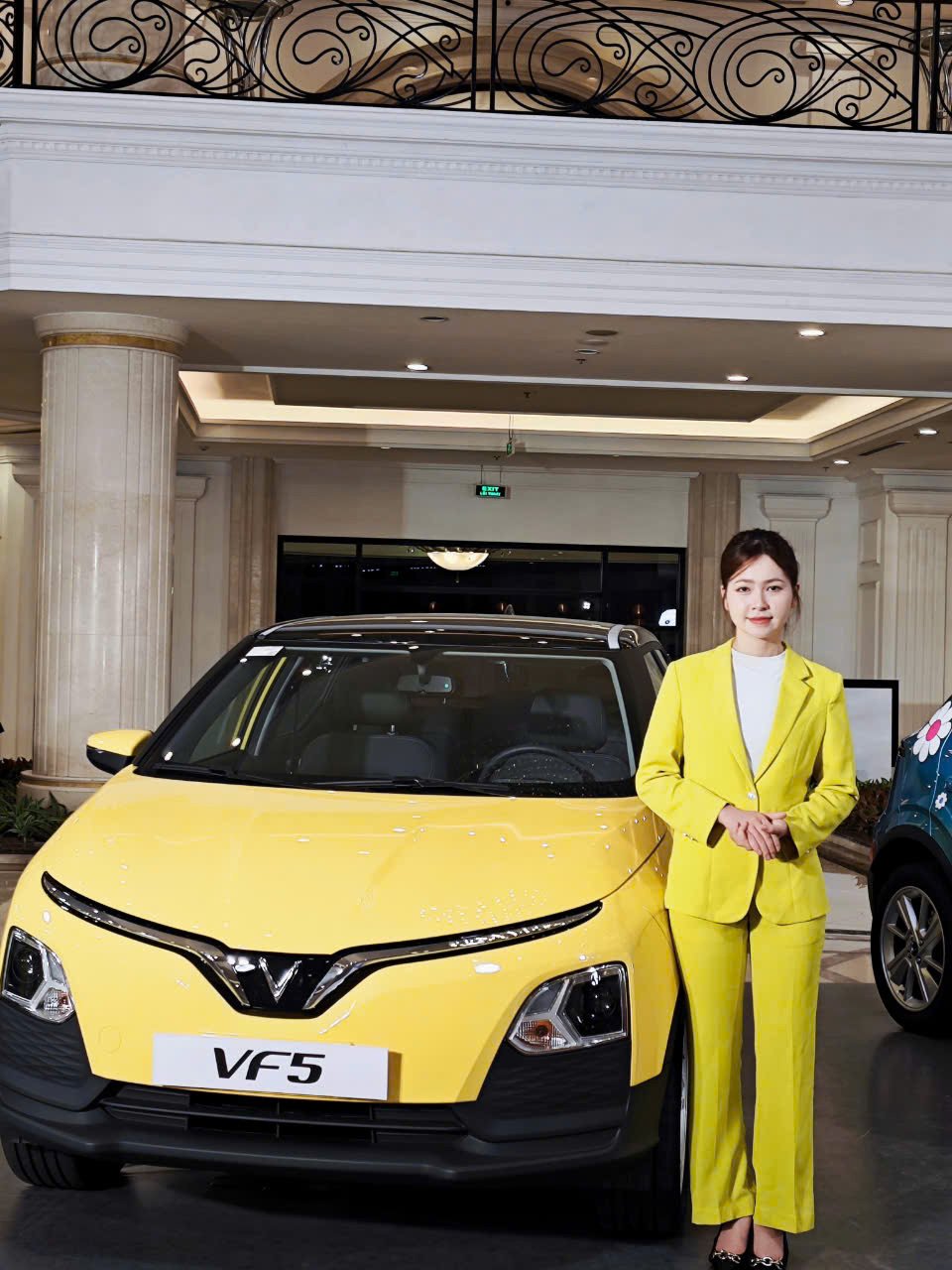
Many VinFast car models sell more than Japanese, Korean cars... in the Vietnamese market - Photo: CONG TRUNG
Renewable energy, the key to greener electric vehicles
Whether an electric car is truly “green” depends largely on the energy source used to charge its batteries. When charged from renewable energy sources such as wind and solar, electric cars have the potential to reduce greenhouse gas emissions significantly more than when using electricity from fossil fuels.
According to the International Energy Agency (IEA), global renewable energy reached 510 gigawatts in 2023 and is expected to account for 42% of electricity generation by 2028. This is an important step towards maximizing the environmental benefits of electric vehicles.
In Vietnam, the Power Development Plan VIII sets a target of increasing renewable energy capacity to 71.5% by 2050, affirming a strong commitment to reducing emissions and protecting the environment.
With the rapid development of wind and solar projects, electric vehicles will have the opportunity to access cleaner energy sources and maximize the potential for emission reduction. However, in many areas, electric vehicles still rely on the grid from coal and fossil fuels, so a comprehensive transition to renewable energy is still a long-term goal that needs to be achieved to achieve the maximum environmental benefits of electric vehicles.
Attracting investment capital for electric vehicles
Faced with the great potential of electric vehicles, many businesses in Vietnam have stepped up investment and entered the electric vehicle market. Typically, Saigon Transport Mechanical Corporation (Samco) cooperated with VinFast to build an electric vehicle dealership in Binh Tan District, Ho Chi Minh City, which provides full services from purchasing, maintenance to electric vehicle maintenance.
Mr. Pham Quoc Huy, Chairman of the Board of Directors of Samco, said that the launch of the VinFast electric vehicle dealership - Samco Binh Tan not only contributes to introducing the first electric vehicle line manufactured in Vietnam, but is also a practical action to promote sustainable transportation development and reduce CO2 emissions.
In its first year, the dealership expects to sell 264 vehicles and handle more than 12,000 repairs, with plans to grow vehicle sales by 10% and services by 5% each year.
Mr. Huy revealed that Samco continues to promote business research, production and assembly of electric vehicles. The initial product range is expected to be electric buses, electric vehicles for tourism... The electric vehicle lines developed by Samco do not directly compete with the product range of VinFast cars.
In addition, Togo Group and Lado Taxi have invested heavily in electric vehicles to serve the demand for green transportation services. Mr. Vo Quoc Binh, representative of Togo Group Joint Stock Company (HCMC), said that this enterprise has signed a contract to buy more than 2,000 electric cars to run the service.
According to the plan, the company will receive 500 units in advance in 2024 and has already received more than 100 units. In addition, the company also signed a contract in principle with Vietnamese car manufacturer VinFast to buy 1,000 VF 3 units.
The future of electric vehicles in Vietnam
For electric vehicles to be truly “clean”, increasing investment in renewable energy is an important and inevitable step. The Vietnamese government has proposed strong support policies for the development of electric vehicles and clean energy. The goal is to reach peak emissions by 2030 and move towards net zero emissions by 2050.
The strong entry of businesses into the electric vehicle market along with the Government's incentive policies will be an important driving force to help electric vehicles become the mainstream means of transport.
Mr. Hoang Duong Tung, Chairman of the Vietnam Clean Air Network, assessed that Hanoi and many other cities in Vietnam are currently seriously polluted. One of the main causes of air pollution is personal vehicles.
There are many motorbikes and cars that run on fossil fuels. There are no regulations to control emissions on motorbikes, so they can emit as much black smoke as they want.
VinFast, along with many other businesses, using electric vehicles such as motorbikes, cars, and buses is a great effort to reduce pollution. In parallel, the public transport system is expanded, trees are planted, and elevated railways are built...
According to Mr. Tung, switching to electric vehicles and no longer using fossil fuels is the right direction, we must go, there is no other way, otherwise pollution will continue.
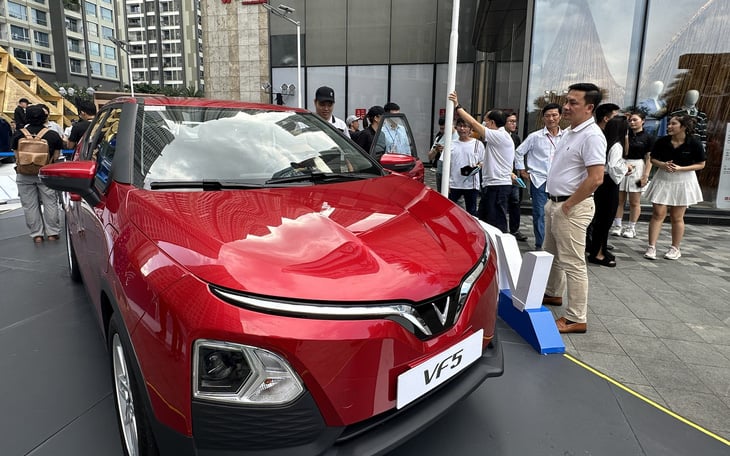 Reduce gasoline cars, increase electric cars towards green transportation
Reduce gasoline cars, increase electric cars towards green transportationSource: https://tuoitre.vn/xe-dien-ngay-cang-sach-hon-vi-sao-20241106235748407.htm


![[Photo] General Secretary To Lam holds talks with General Secretary and President of China Xi Jinping](https://vstatic.vietnam.vn/vietnam/resource/IMAGE/2025/4/14/b3d07714dc6b4831833b48e0385d75c1)
![[Photo] National Assembly Chairman Tran Thanh Man meets with General Secretary and President of China Xi Jinping](https://vstatic.vietnam.vn/vietnam/resource/IMAGE/2025/4/14/4e8fab54da744230b54598eff0070485)

![[Photo] Reception to welcome General Secretary and President of China Xi Jinping](https://vstatic.vietnam.vn/vietnam/resource/IMAGE/2025/4/14/9afa04a20e6441ca971f6f6b0c904ec2)

![[Photo] Prime Minister Pham Minh Chinh meets with General Secretary and President of China Xi Jinping](https://vstatic.vietnam.vn/vietnam/resource/IMAGE/2025/4/14/893f1141468a49e29fb42607a670b174)


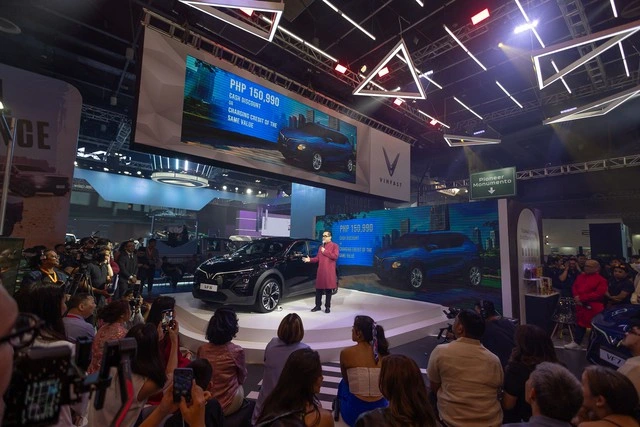

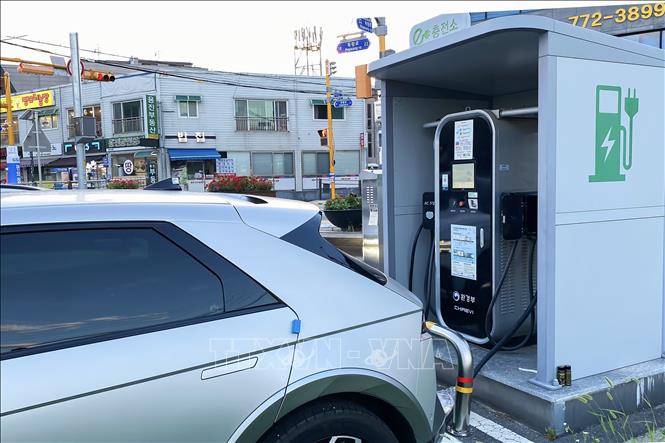

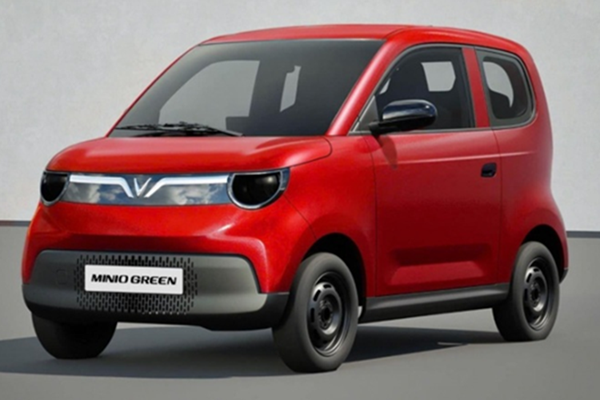


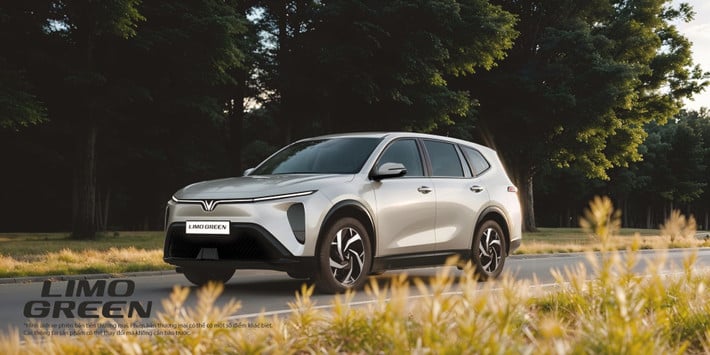

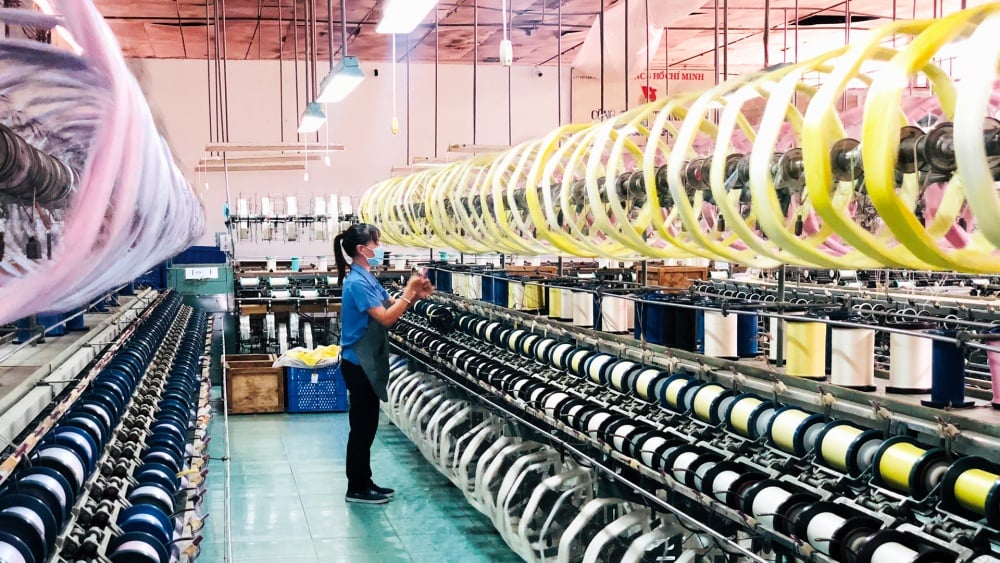































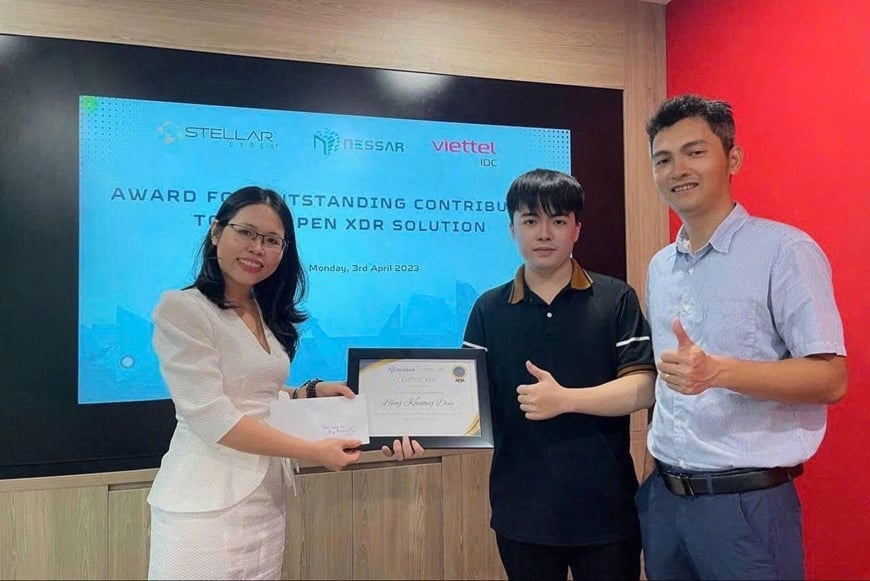

























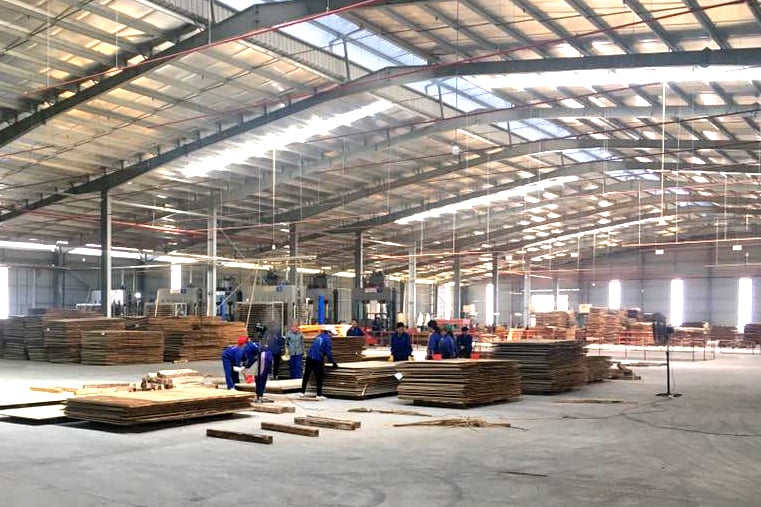















Comment (0)